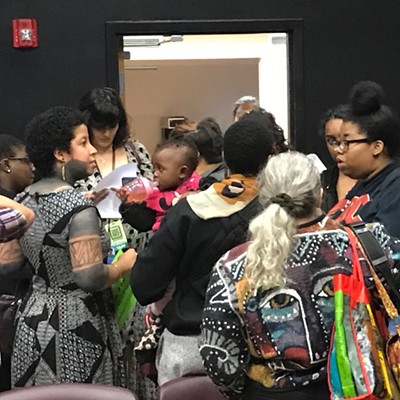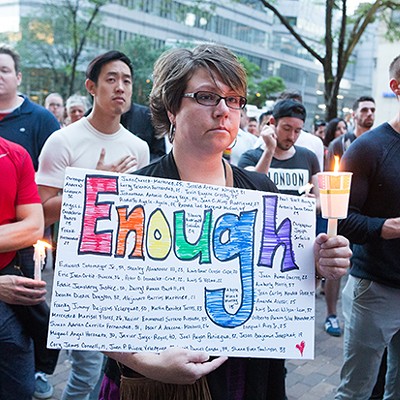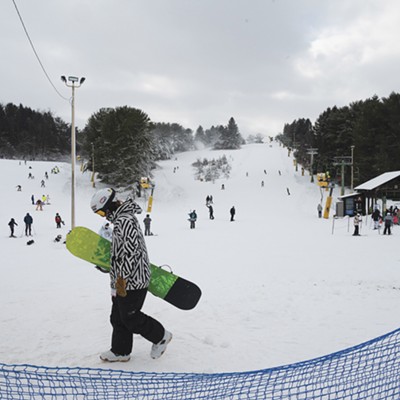Friday, June 9, 2017
Researchers at Pittsburgh conference say human trafficking hits close to home
According to researchers at a conference at the University of Pittsburgh this week, human trafficking is a major problem in the world today, and more local than many people know.
On June 7 and 8, the Center on Race and Social Problems in Pitt’s School of Social Work held its 2017 Race and Child Welfare Summer Institute. Inside the Cathedral of Learning, 60 social workers and professionals in related agencies gathered to hear a variety of presentations dealing with subjects like human trafficking, welcoming immigrants and the vulnerability of refugees in Pittsburgh.
The second day of the institute focused on human trafficking. Rowena Fong, a professor at the University of Texas at Austin’s School of Social Work, gave a presentation titled “Culturally Competent Practice with International and Domestic Victims of Human Trafficking: Meeting the Needs of Child Victims of Human Trafficking.”
“Let’s take away the stereotypes of who these traffickers are, of who these victims are,” Fong said. “They could be our daughters, they could be our nieces. They get deceived.”
The belief that “that doesn’t happen here” is pervasive in attitudes towards human trafficking, said Fong, who worries that the spotlight won’t stay on the issue long enough to solve it. “In general with social work problems, when they first start there’s a lot of interest, a lot of concern, but I think as new problems crop up, they crowd out the old ones,” she said. “We’ve seen that. It’s just a matter of being able to attend to all the different types of problems.”
Both Fong and Mary Burke, a professor of psychology at Carlow University in Pittsburgh and executive director of the Project to End Human Trafficking, emphasized that trafficking happens closer to home than many people think. In Burke’s presentation, “The Vulnerability of Immigrants and Refugees in Pittsburgh,” she gave an example of a known case in Squirrel Hill, as well as images of online ads seeking women in Pittsburgh that raise red flags of possible human trafficking.
“Trafficking in persons is the fastest-growing and second-largest criminal industry in the world today,” said Burke who noted it’s hard to know just how fast the human-trafficking industry is growing, as the issue has been given increased attention in more recent years that it didn’t have before.
The Center on Race and Social Problems, which was established in 2002, holds multiple institutes each summer geared toward enabling professional development for social workers through discussion of timely topics. The first day of the institute focused on the intersection of immigrants, refugees and human-service systems.
Center coordinator Penelope Miller says there are two main reasons it is important to talk about welcoming immigrants and refugees in Pittsburgh right now. “The city of Pittsburgh has an aging population,” Miller said. “And it’s the right thing to do. Pittsburgh is a politically progressive city, and we believe in the American ideal of welcoming all people. Because of the shortfall in the workforce, we need new people.”
According to recent census figures, without an influx of international migration to the Pittsburgh metro area, the region would have lost 36,580 residents since 2010.
On June 7 and 8, the Center on Race and Social Problems in Pitt’s School of Social Work held its 2017 Race and Child Welfare Summer Institute. Inside the Cathedral of Learning, 60 social workers and professionals in related agencies gathered to hear a variety of presentations dealing with subjects like human trafficking, welcoming immigrants and the vulnerability of refugees in Pittsburgh.
The second day of the institute focused on human trafficking. Rowena Fong, a professor at the University of Texas at Austin’s School of Social Work, gave a presentation titled “Culturally Competent Practice with International and Domestic Victims of Human Trafficking: Meeting the Needs of Child Victims of Human Trafficking.”
“Let’s take away the stereotypes of who these traffickers are, of who these victims are,” Fong said. “They could be our daughters, they could be our nieces. They get deceived.”
The belief that “that doesn’t happen here” is pervasive in attitudes towards human trafficking, said Fong, who worries that the spotlight won’t stay on the issue long enough to solve it. “In general with social work problems, when they first start there’s a lot of interest, a lot of concern, but I think as new problems crop up, they crowd out the old ones,” she said. “We’ve seen that. It’s just a matter of being able to attend to all the different types of problems.”
Both Fong and Mary Burke, a professor of psychology at Carlow University in Pittsburgh and executive director of the Project to End Human Trafficking, emphasized that trafficking happens closer to home than many people think. In Burke’s presentation, “The Vulnerability of Immigrants and Refugees in Pittsburgh,” she gave an example of a known case in Squirrel Hill, as well as images of online ads seeking women in Pittsburgh that raise red flags of possible human trafficking.
“Trafficking in persons is the fastest-growing and second-largest criminal industry in the world today,” said Burke who noted it’s hard to know just how fast the human-trafficking industry is growing, as the issue has been given increased attention in more recent years that it didn’t have before.
The Center on Race and Social Problems, which was established in 2002, holds multiple institutes each summer geared toward enabling professional development for social workers through discussion of timely topics. The first day of the institute focused on the intersection of immigrants, refugees and human-service systems.
Center coordinator Penelope Miller says there are two main reasons it is important to talk about welcoming immigrants and refugees in Pittsburgh right now. “The city of Pittsburgh has an aging population,” Miller said. “And it’s the right thing to do. Pittsburgh is a politically progressive city, and we believe in the American ideal of welcoming all people. Because of the shortfall in the workforce, we need new people.”
According to recent census figures, without an influx of international migration to the Pittsburgh metro area, the region would have lost 36,580 residents since 2010.
Tags: human trafficking , immigration , refugees , Center on Race and Social Problems , Carlow University , University of Pittsburgh , University of Texas at Austin School of Social Work , Rowena Fong , Mary Burke , Penelope Miller , Image
















